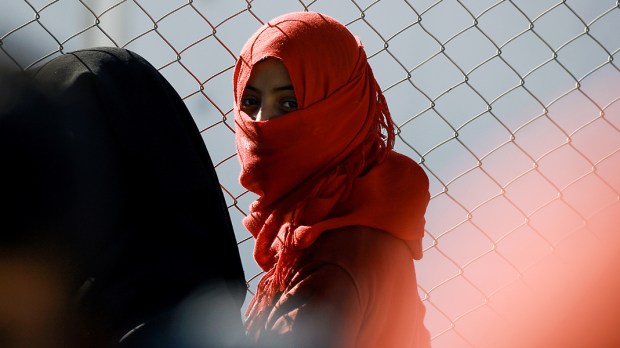Lenten Campaign 2025
This content is free of charge, as are all our articles.
Support us with a donation that is tax-deductible and enable us to continue to reach millions of readers.
In 2014, unimpeded by any resistance from the West, the Islamic State made a horrific assault upon the Yazidi peoples living in the northwestern region of Iraq, forcing them them to flee to Mount Sinjar, where thousands of elderly and the very young were stranded and taken captive. Many of the younger women and children were subjected to untold horrors as the surging regime declared, under an obscure Islamic law, their right to enslave Yazidi women.
The recent recovery of Mosul has helped approximately 180 young women and children to become reunited with their families, but walking away from the captivity and sexual assault they have endured promises to be a difficult and long process. Often sold and resold as slaves, they now face an unimaginably arduous road of physical, emotional and spiritual healing and self-reclamation. Able to run to their families upon first meet-up, to “cry and laugh” in those first moments of reunion, the women soon — sometimes within hours — find themselves unable to stand, or to stay awake, as the family of 16-year-old Souhayla, an ISIS captive who was sold seven times since that 2014 aggression, described to journalists:
Women rescued in the first two years after ISIS overran their ancestral homeland came home with infections, broken limbs and suicidal thoughts. But now, after three years of captivity, women like Souhayla and two others seen last week by reporters, are far more damaged, displaying extraordinary signs of psychological injury. “Very tired,” “unconscious” and “in severe shock and psychological upset” were the descriptions used by Dr. Nagham Nawzat Hasan, a Yazidi gynecologist who has treated over 1,000 of the rape victims. “We thought the first cases were difficult,” Dr. Hasan said. “But those after the liberation of Mosul, they are very difficult.”
The “shock” manifests as a kind of “escape into sleep.” The women will sometimes sleep for days at a time, eating sparsely and interacting with their families only with great effort, their eyes eventually rolling back as they slip away into unconsciousness.
Family members have visited their reclaimed sisters and cousins, bringing supplies and gifts to them at the Shariya Camp in Iraq (where medical attention and processing assistance is available), and they leave distraught and weeping at what they have observed in their encounters.
Cars pulled up outside, bringing relatives carrying pallets of orange soda. They left the tent, hands over their mouths, trying to hold back sobs. Family members said that except for a few brief moments, the women have not awakened since then, over a week ago.
It is common knowledge that victims of sexual abuse will dissociate — mentally and spiritually compartmentalize within themselves — as a means of enduring and surviving these terrors. This is something I have experienced in my own life. I suspect now that these women are home, and safely among people who love them, their minds — which had to remain alert to survive — are shutting down, both as a means of restorative healing and self protection. Imagining how much they are having to process internally and emotionally, it’s really not surprising to learn that they are feeling weak and sleeping excessively. Sometimes, in the face of the rest of your life, a world can simply become too much to take in, except in small pieces and moments, until one feels stronger.
Over 6,000 were originally taken as prisoners by ISIS and over 3,000 remain captive or unaccounted for. It was recently reported that hundreds of women and girls were held and abused at the Syrian Orthodox Church of St. Ephraim, in Mosul.
Healing from the years-long ordeal of captivity, enslavement, and sexual assault promises to be long and complicated for these much sinned-against women, who were kidnapped while the world watched, and then all but forgotten amidst daily headlines and internet distractions.
Let us keep them in our prayers, every day.

